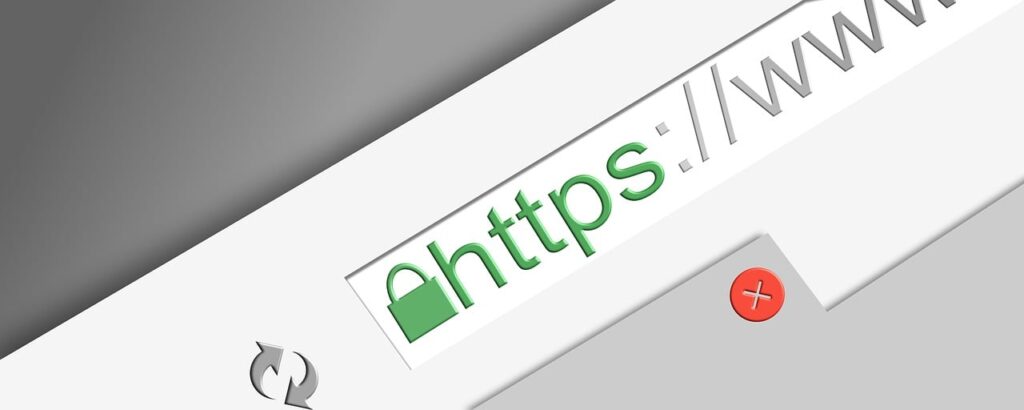Choosing the right Content Management System (CMS) is crucial for building and managing your website efficiently. The best CMS for you depends on factors like ease of use, flexibility, scalability, SEO-friendliness, and cost.
Below is a detailed comparison of the top CMS platforms based on different use cases.
1. Key Factors to Consider When Choosing a CMS
Before selecting a CMS, consider the following:  Ease of Use – How beginner-friendly is the platform?
Ease of Use – How beginner-friendly is the platform?
 Customization & Flexibility – Does it support plugins, themes, or custom coding?
Customization & Flexibility – Does it support plugins, themes, or custom coding?
 Scalability – Can it handle large websites or eCommerce stores?
Scalability – Can it handle large websites or eCommerce stores?
 SEO & Performance – Does it provide good SEO tools and fast loading times?
SEO & Performance – Does it provide good SEO tools and fast loading times?
 Security – How secure is the CMS against cyber threats?
Security – How secure is the CMS against cyber threats?
 Pricing – Is it cost-effective? Are there hidden costs for plugins, hosting, or themes?
Pricing – Is it cost-effective? Are there hidden costs for plugins, hosting, or themes?
2. Best CMS Platforms Compared
(A) WordPress.org – Best for Most Websites
 Best for: Blogs, business websites, eCommerce, membership sites.
Best for: Blogs, business websites, eCommerce, membership sites.
 Cost: Free (hosting & premium themes/plugins cost extra).
Cost: Free (hosting & premium themes/plugins cost extra).
 Pros:
Pros:
 Highly customizable with 60,000+ plugins
Highly customizable with 60,000+ plugins
 SEO-friendly with plugins like Yoast SEO
SEO-friendly with plugins like Yoast SEO
 Strong community support
Strong community support
 Supports eCommerce via WooCommerce
Supports eCommerce via WooCommerce
 Cons:
Cons:
 Requires hosting & manual updates
Requires hosting & manual updates
 Security depends on proper plugin management
Security depends on proper plugin management
 Verdict: The most popular CMS, ideal for scalability, flexibility, and SEO.
Verdict: The most popular CMS, ideal for scalability, flexibility, and SEO.
(B) Shopify – Best for eCommerce
 Best for: Online stores, dropshipping, retail.
Best for: Online stores, dropshipping, retail.
 Cost: Starts at $29/month.
Cost: Starts at $29/month.
 Pros:
Pros:
 Easy to use – no coding required
Easy to use – no coding required
 Secure & fast hosting included
Secure & fast hosting included
 Built-in payment gateways & inventory management
Built-in payment gateways & inventory management
 Great for mobile shopping
Great for mobile shopping
 Cons:
Cons:
 Limited design customization
Limited design customization
 Transaction fees unless using Shopify Payments
Transaction fees unless using Shopify Payments
 Verdict: Best for eCommerce beginners & businesses that want a simple, managed solution.
Verdict: Best for eCommerce beginners & businesses that want a simple, managed solution.
(C) Wix – Best for Beginners & Small Businesses
 Best for: Small business websites, portfolios, personal sites.
Best for: Small business websites, portfolios, personal sites.
 Cost: Free (with Wix branding) or starts at $16/month for premium.
Cost: Free (with Wix branding) or starts at $16/month for premium.
 Pros:
Pros:
 Drag-and-drop builder (no coding required)
Drag-and-drop builder (no coding required)
 Easy to use with AI-powered site creation
Easy to use with AI-powered site creation
 Includes hosting & security
Includes hosting & security
 Cons:
Cons:
 Less flexible than WordPress
Less flexible than WordPress
 Limited SEO & scalability
Limited SEO & scalability
 Verdict: Great for beginners who want a quick, no-fuss website.
Verdict: Great for beginners who want a quick, no-fuss website.
(D) Joomla – Best for Advanced Users
 Best for: Complex websites, government sites, social networks.
Best for: Complex websites, government sites, social networks.
 Cost: Free (self-hosted).
Cost: Free (self-hosted).
 Pros:
Pros:
 More flexible than WordPress for developers
More flexible than WordPress for developers
 Multi-language support built-in
Multi-language support built-in
 Advanced user management & security
Advanced user management & security
 Cons:
Cons:
 Steep learning curve for beginners
Steep learning curve for beginners
 Fewer themes/plugins than WordPress
Fewer themes/plugins than WordPress
 Verdict: A powerful CMS for developers & complex websites, but not beginner-friendly.
Verdict: A powerful CMS for developers & complex websites, but not beginner-friendly.
(E) Drupal – Best for Large, Data-Heavy Websites
 Best for: Enterprise websites, universities, governments.
Best for: Enterprise websites, universities, governments.
 Cost: Free (requires hosting).
Cost: Free (requires hosting).
 Pros:
Pros:
 Extremely secure & scalable
Extremely secure & scalable
 Advanced customization & flexibility
Advanced customization & flexibility
 Excellent for handling large data volumes
Excellent for handling large data volumes
 Cons:
Cons:
 Very steep learning curve
Very steep learning curve
 Requires coding knowledge (PHP, HTML, CSS)
Requires coding knowledge (PHP, HTML, CSS)
 Verdict: Best for large, enterprise-level websites that need high security & flexibility.
Verdict: Best for large, enterprise-level websites that need high security & flexibility.
(F) Webflow – Best for Designers & Agencies
 Best for: Web designers, agencies, custom-built sites.
Best for: Web designers, agencies, custom-built sites.
 Cost: Free with Webflow branding, paid plans start at $18/month.
Cost: Free with Webflow branding, paid plans start at $18/month.
 Pros:
Pros:
 Powerful drag-and-drop visual editor
Powerful drag-and-drop visual editor
 Full design customization without coding
Full design customization without coding
 Faster than Wix, with better SEO
Faster than Wix, with better SEO
 Cons:
Cons:
 Steeper learning curve than Wix
Steeper learning curve than Wix
 More expensive than WordPress
More expensive than WordPress
 Verdict: Great for designers who want control over design without coding.
Verdict: Great for designers who want control over design without coding.
3. CMS Comparison Table
| CMS |
Best For |
Ease of Use |
Customization |
SEO-Friendly |
Scalability |
Pricing |
| WordPress.org |
Blogs, Business, eCommerce |
    |
     |
     |
     |
Free (hosting required) |
| Shopify |
eCommerce Stores |
     |
  |
   |
    |
$29+/month |
| Wix |
Small Businesses, Portfolios |
     |
  |
  |
  |
Free/$16+ |
| Joomla |
Advanced Websites, Social Platforms |
   |
    |
    |
    |
Free (hosting required) |
| Drupal |
Large Enterprises, Government |
  |
    |
   |
     |
Free (hosting required) |
| Webflow |
Designers, Agencies |
   |
     |
    |
   |
Free/$18+ |
4. Which CMS Should You Choose?
 Choose WordPress if you want flexibility, SEO-friendliness, and long-term scalability.
Choose WordPress if you want flexibility, SEO-friendliness, and long-term scalability. Choose Shopify if you’re launching an eCommerce store and need an all-in-one solution.
Choose Shopify if you’re launching an eCommerce store and need an all-in-one solution. Choose Wix if you’re a beginner and want a quick, simple website.
Choose Wix if you’re a beginner and want a quick, simple website. Choose Joomla if you’re tech-savvy and need advanced functionality.
Choose Joomla if you’re tech-savvy and need advanced functionality. Choose Drupal if you’re building a large-scale, highly secure enterprise website.
Choose Drupal if you’re building a large-scale, highly secure enterprise website. Choose Webflow if you’re a designer or agency needing total creative control.
Choose Webflow if you’re a designer or agency needing total creative control.
Final Thoughts
There is no one-size-fits-all CMS. The best choice depends on your goals, technical skills, and scalability needs. If you’re looking for ease of use and flexibility, WordPress is the best choice. If you’re focused on eCommerce, Shopify is the easiest option.
 Need help setting up your CMS? Let me know, and I’ll guide you through the process!
Need help setting up your CMS? Let me know, and I’ll guide you through the process! 




























































































































































Choose WordPress if you want flexibility, SEO-friendliness, and long-term scalability.
Choose Shopify if you’re launching an eCommerce store and need an all-in-one solution.
Choose Wix if you’re a beginner and want a quick, simple website.
Choose Joomla if you’re tech-savvy and need advanced functionality.
Choose Drupal if you’re building a large-scale, highly secure enterprise website.
Choose Webflow if you’re a designer or agency needing total creative control.








